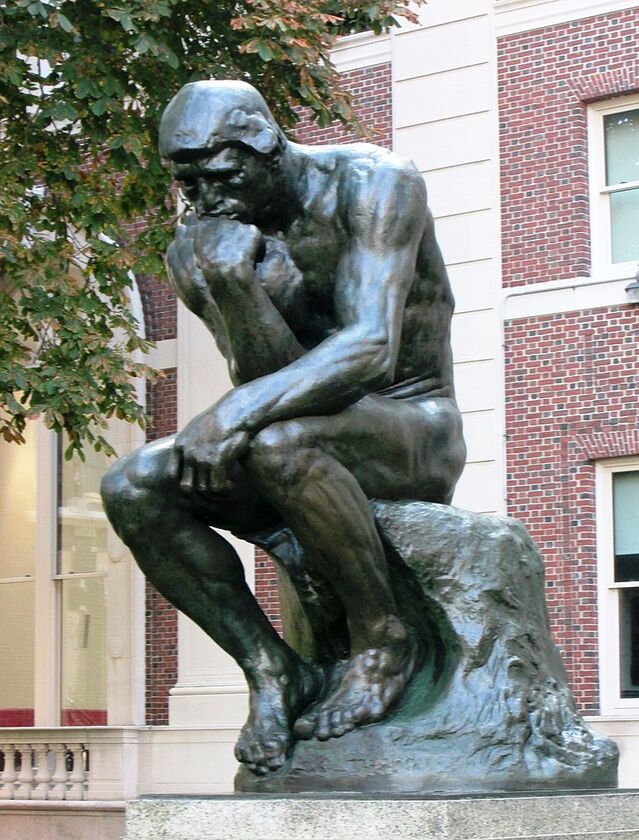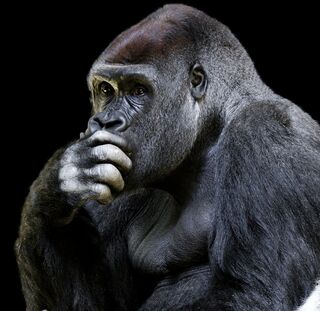Intelligence
Americans Are Too Smart for Their Own Good
Intelligence is driving increased political polarization.
Posted November 29, 2021 Reviewed by Michelle Quirk
Key points
- Intelligence and education are correlated with increased polarization.
- Mainstream schooling may cause arrogance and closed-mindedness.
- Intelligence is not necessarily a moral "good."

Intelligence and knowledge are viewed positively, not just for individuals but also for the collective good of society. We admire smart people and aspire to be informed and clever ourselves. And studies do show associations between measures of intelligence and various forms of success. Put another way, smart people flourish. But there is a dark side that’s equally important for us to explore. Braininess is not always a good thing.
I’ve been wanting to write this perspective for a long time, as it’s been creeping into my thoughts ever since I wrote the first and second entries for this blog in early 2020. In those posts, I described research showing that even though Americans tend to express strong agreement on most political topics and issues, it feels like we’re sharply divided along partisan lines. But this feeling is based on a misunderstanding. Research by the More in Common group shows how abysmal we are at estimating each other’s political attitudes. For instance, we dramatically underestimate the number of Republicans who support immigration, and we underestimate the number of Democrats who support police, each by more than 30 percentage points. This is known as the perception gap.
These misperceptions may result from stereotypes of who the average Democratic and Republican voters actually are and how they think about issues. We view the average conservative Republican as a confederate flag–raising, gun-toting, churchgoing, wealthy white man with a Southern accent, filled with anger toward immigrants and ethnic minorities. We view the average liberal Democrat as a morally presumptuous, college-graduate, flag-burning, secular, LGBTQ+ person of color yelling on Twitter for someone to be canceled because of some vaguely offensive comment. Of course, these political stereotypes about the average Democrat and Republican are wildly inaccurate, and they have terrible consequences. There is evidence that having inaccurate beliefs about others is linked with animosity toward political outgroups. If we want to depolarize the country, we need to have more accurate views of each other.

Intelligence and Education Make People Less Politically Accurate
The More in Common group also investigated what variables might make individuals more likely to hold these inaccurate stereotypes. They found that, for Democrats, higher education was correlated with greater inaccuracy. They also noted the irony of this finding since higher education is meant to give people a more accurate understanding of the world. But for American liberals, the opposite is true.
Other researchers have found similar results. According to nationally representative polling data, education level is correlated with increased ideological bigotry — that is, an intolerance for others with different viewpoints. Studies have similarly pointed to intelligence as a driver of political bigotry. Smart people can be huge jerks!
Taken together, this line of research suggests that education/intelligence goes hand in hand with political misperceptions, stereotypes, animosity, and polarization. How can we explain this puzzling trend?
Why Are Intelligence and Education Causing Problems?
Some scholars suggest this is partially explained by the fact that, with more education, people become more socially insular, meaning that they have fewer friends from other parties and exist in ideological echo chambers. This is especially true when we consider that people tend to live geographically close to others who have similar political views.
But there are other explanations, including the fact that going through school is linked with a tendency to be less curious and more intellectually arrogant. You’d think it would be the opposite! But some studies have found that academic achievement makes people conceited and closed-minded. In school, students are socialized to view intellectual pursuits as part of a competition in which their ideas need to outperform other people’s ideas. This is antithetical to democratic norms. By contrast, when people are intellectually humble, they are more receptive to hearing and respecting others’ viewpoints, even when they may be conflicting. This is measured by asking people to respond to statements such as, “I accept that my beliefs and attitudes may be wrong” and “I recognize the value in opinions that are different from my own.” Humility leads to constructive cooperation with political rivals. Scientists suggest that whether Americans are modest or arrogant can have “significant implications for social extremism and political polarization.” As I’ve written elsewhere, curiosity is an extremely important variable for learning and for democracy, but it’s de-emphasized and stifled in mainstream educational settings. Schooling makes people less humble and more arrogant, with lower tolerance for viewpoint diversity. This is exactly the opposite of what we want schools to do.
Another possibility is that with greater intelligence comes the tendency to do more mental gymnastics. You may have heard the terms confirmation bias or motivated reasoning, which suggest that people are biased in terms of how they process information. When we encounter facts that we don’t like, we are often quick to reject them and find ways to stay in our zone of psychological comfort. Perhaps highly educated or intelligent people are skilled at mind-bending and distorting social information. Cultural cognition researchers led by Dan Kahan suggest that part of the reason why individuals might reject factually true information isn’t because they are ignorant or stupid; it’s because those facts are a threat to their social identities. Based on this idea, they found that, for Republicans, higher intelligence predicts lower likelihood of believing that climate change is happening due to fossil fuel emissions. By contrast, curiosity does the opposite; more scientifically curious Republicans are more concerned with solving climate change. Similar results emerged through Gallup polling, which shows that education increases disbelief in climate change among Republicans. This is another strike against the idea that intelligence and knowledge create a more-enlightened society.
Conclusions: Rethinking Schools and Intelligence

So where do we go from here? My hope is that we all realize that we need to fundamentally rethink the conventional logic around education. Mainstream schools are not an unequivocally good institution, in part because they stifle curiosity and promote intellectual arrogance, along with antidemocratic ways of thinking. If schools are driving polarization, this can have disastrous consequences for the health of our society.
I think it’s especially important for my fellow liberals to decouple intelligence from moral goodness. They are not the same. Intelligence helps us accomplish incredible things, but we can’t lose sight of the core values that unite our movement. Liberty, justice, and compassion are not conferred to those with high IQs or college degrees. They are earned when we see the humanity in others and treat them with empathy even if we strongly disagree with them or belong to rival groups. Being moral doesn’t mean being correct. It means being humble enough to remember that you’re not always correct. It means that even when your rivals are incorrect, that doesn’t make them bad people. It means remembering that, in a flourishing society, there is so much we can learn and appreciate from one another.
References
Ahler, D. J., & Sood, G. (2018). The parties in our heads: Misperceptions about party composition and their consequences. The Journal of Politics, 80(3), 964–981.
Bowes, S. M., Costello, T. H., Lee, C., McElroy-Heltzel, S., Davis, D. E., & Lilienfeld, S. O. (2021). Stepping Outside the Echo Chamber: Is Intellectual Humility Associated with Less Political Myside Bias? Personality and Social Psychology Bulletin, https://doi.org/10.1177/0146167221997619.
Ganzach, Y., & Schul, Y. (2021). Partisan ideological attitudes: Liberals are tolerant; the intelligent are intolerant. Journal of Personality and Social Psychology, 120(6), 1551.
Henry, P. J., & Napier, J. L. (2017). Education is related to greater ideological prejudice. Public Opinion Quarterly, 81(4), 930–942.
Kahan, D. M., Landrum, A., Carpenter, K., Helft, L., & Hall Jamieson, K. (2017). Science curiosity and political information processing. Political Psychology, 38, 179–199.
Kahan, D. M., Peters, E., Wittlin, M., Slovic, P., Ouellette, L. L., Braman, D., & Mandel, G. (2012). The polarizing impact of science literacy and numeracy on perceived climate change risks. Nature Climate Change, 2(10), 732–735.
Meagher, B. R., Leman, J. C., Bias, J. P., Latendresse, S. J., & Rowatt, W. C. (2015). Contrasting self-report and consensus ratings of intellectual humility and arrogance. Journal of Research in Personality, 58, 35–45.
Stanley, M. L., Sinclair, A. H., & Seli, P. (2020). Intellectual humility and perceptions of political opponents. Journal of Personality, 88(6), 1196–1216.
Yudkin, D., Hawkins, S., & Dixon, T. (2019). The perception gap: How false impressions are pulling Americans apart. Retrieved from: https://perceptiongap.us/media/zaslaroc/perception-gap-report-1-0-3.pdf




